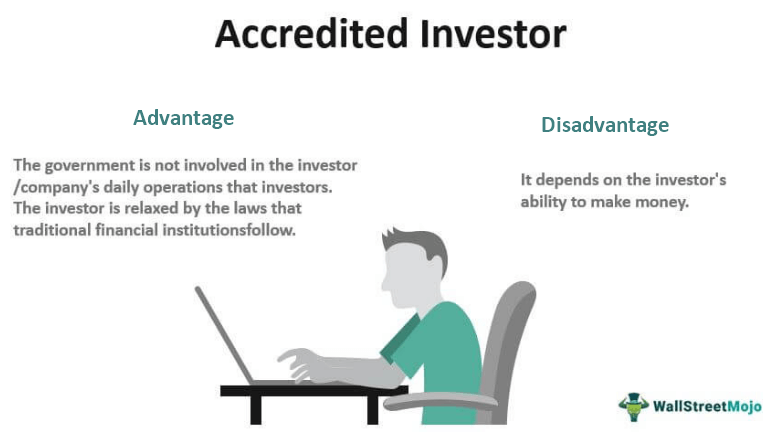What Is an Accredited Investor?
An accredited investor is an individual or a business entity that is allowed to trade securities that may not be registered with financial authorities. They are entitled to this privileged access by satisfying at least one requirement regarding their income, net worth, asset size, governance status, or professional experience.
In the U.S., the term accredited investor is used by the Securities and Exchange Commission (SEC) under Regulation D to refer to investors who are financially sophisticated and have a reduced need for the protection provided by regulatory disclosure filings. Accredited investors include high-net-worth individuals (HNWIs), banks, insurance companies, brokers, and trusts.
Understanding Accredited Investors
Accredited investors are legally authorized to purchase securities that are not registered with regulatory authorities like the SEC. Many companies decide to offer securities to this class of accredited investors directly. Because this decision allows companies exemption from registering securities with the SEC, it can save them a lot of money.
This type of share offering is referred to as a private placement. It has the potential to present these accredited investors with a great deal of risk. Therefore authorities need to ensure that they are financially stable, experienced, and knowledgeable about their risky ventures.
When companies decide to offer their shares to accredited investors, the role of regulatory authorities is limited to verifying or offering the necessary guidelines for setting benchmarks to determine who qualifies as an accredited investor. Regulatory authorities help determine if the applicant possesses the necessary financial means and knowledge to take the risks involved in investing in unregistered securities.
(iii) The restrictions on the resale of a security offered and sold in reliance on section 4(a)(6) of the Securities Act (15 U.S.C. 77d(a)(6));
(iv) The types of information that an issuer is required to provide under § 227.202, the frequency of the delivery of that information and the possibility that those obligations may terminate in the future;
Accredited investors also have privileged access to venture capital, hedge funds, angel investments, and deals involving complex and higher-risk investments and instruments.
Requirements for Accredited Investors
The regulations for accredited investors vary from one jurisdiction to the other and are often defined by a local market regulator or a competent authority. In the U.S, the definition of an accredited investor is put forth by SEC in Rule 501 of Regulation D.
To be an accredited investor, a person must have an annual income exceeding $200,000 ($300,000 for joint income) for the last two years with the expectation of earning the same or a higher income in the current year. An individual must have earned income above the thresholds either alone or with a spouse over the last two years. The income test cannot be satisfied by showing one year of an individual's income and the next two years of joint income with a spouse.
A person is also considered an accredited investor if they have a net worth exceeding $1 million, either individually or jointly with their spouse. This amount cannot include a primary residence. The SEC also considers a person to be an accredited investor if they are a general partner, executive officer, or director for the company that is issuing the unregistered securities.
An entity is considered an accredited investor if it is a private business development company or an organization with assets exceeding $5 million. Also, if an entity consists of equity owners who are accredited investors, the entity itself is an accredited investor. However, an organization cannot be formed with the sole purpose of purchasing specific securities.



